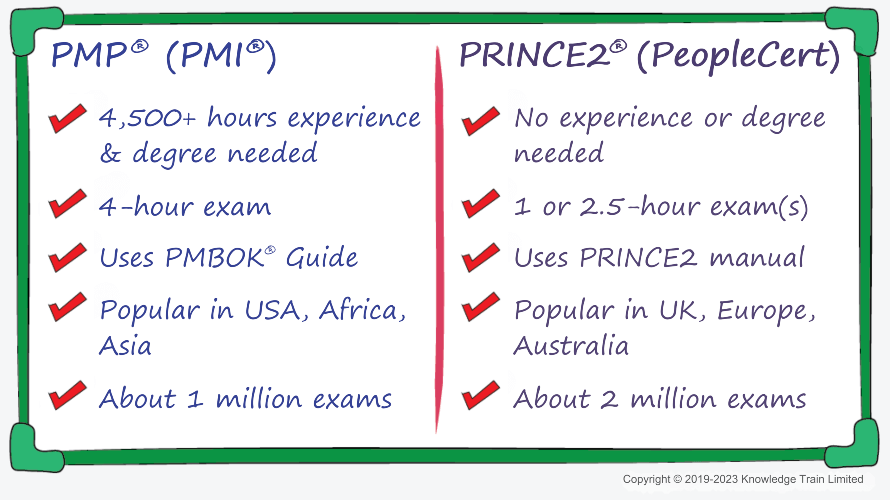Introduction to programmes and their impact
Programmes cover a wide range of topics in education, careers, and professional development. Educational programmes and learning programmes offer children and students access to information and resources. Online programmes and professional programmes provide training, guidance, and support for management, leadership, and project management.
Programme planning, development, and implementation
Progammes and programme development focus on programme planning, programme implementation, and effective programmes management. Each programme addresses governance, risk management, and stakeholder engagement.
Language, content, and broadcast in programmes
Resources such as BBC radio, television, video, and news deliver content in English, French, Hindi, and other languages. Dictionary definitions, grammar, vocabulary, verbs, sentences, spelling, and usage are included for language learning. Examples show the difference between American English and British English.
Supporting academic, company, and community needs
Work programmes, resource allocation, and policy settings support both academic and company needs. Programmes are designed to make learning fun, safe, and accessible with events, series, and games. Universities and schools provide broadcast and online content to assist those who want to explore topics, trends, and research.
Programme management, tools, and accessibility
CMI and other organisations help managers with programme management and change management. Programmes often use advanced tools, systems, and networks to ensure accessibility and security. Event schedules, planned actions, and menu options support users across devices and browsers. Local, regional, and global programmes offer permanent and special work opportunities. Many programmes are free or require registration to access personal accounts, log in, and check information. The same programme may have different meanings, examples, or links depending on the context, language, or word usage.
Programmes are strategic initiatives that coordinate multiple projects; these programmes aim to achieve broader organisational goals, and by managing resources effectively, programmes ensure alignment with strategic priorities, emphasising the importance of programmes in achieving successful outcomes.
Programmes are comprehensive frameworks designed to oversee multiple projects, ensuring that programmes align with strategic objectives and optimise resource utilisation for overall success.
Understanding programmes and their strategic importance
Programmes are structured initiatives that align multiple projects and activities to achieve broader strategic goals. They help organisations coordinate resources, manage risk, and deliver outcomes that support long-term objectives. In programme management, programmes provide the framework for integrating planning, leadership, and governance to ensure consistency and control across complex initiatives.
Well-designed programmes connect strategic planning with operational project management, drawing on program management expertise to improve return on investment and strengthen organisational governance. Leaders use programme-level strategy and strategic alignment to set goals, prioritise resources, and define success criteria that are measurable and transparent.
How programmes support organisational success
Effective programmes provide direction, structure, and accountability for teams working towards shared goals. They enhance collaboration, improve decision-making, and establish strong communication channels between stakeholders. This alignment allows organisations to achieve measurable results and maximise return on investment through strategic management.
What defines a successful programme?
A successful programme delivers clear value to both the organisation and its stakeholders. It maintains balance between innovation and governance while ensuring all projects remain strategically aligned. Strong leadership, stakeholder engagement, and standardised methodologies form the backbone of programme success.
Building strong governance frameworks
Governance ensures programmes operate under consistent standards, with clear accountability and transparency. It defines roles, decision-making processes, and reporting structures that strengthen overall management performance.
Enhancing communication within programmes
Communication plays a vital role in connecting teams and sharing information efficiently. Programme managers establish systems to ensure updates, progress reports, and risk alerts reach every participant in a timely manner.
Across sectors from education to enterprise IT, programmes rely on common language and agreed processes to reduce ambiguity and speed decision-making. Clear governance and communication also support accessibility and standardisation, ensuring that programme outputs are usable and auditable by regulators, funders and partners.
Developing programmes for strategic alignment
Developing programmes requires a clear understanding of strategic alignment and planning. Through structured methodologies, leaders connect programme goals to organisational strategy. This alignment improves coordination between departments and ensures investments deliver meaningful benefits.
Programme development uses a mix of strategic planning, stakeholder analysis, and resource modelling to ensure the programme roadmap supports business objectives. Project management techniques are applied at scale, while training and education components build the capability to deliver sustained outcomes.
Why is strategic planning essential in programmes?
Strategic planning helps define direction, priorities, and performance measures. It guides resource allocation, enables better risk management, and ensures all projects within a programme contribute to long-term objectives.
Integrating programme management methodology
Using established methodologies like MSP or PRINCE2 enhances consistency across projects. These frameworks support education, training, and continual improvement processes that improve quality and efficiency.
Ensuring accessibility and inclusivity
Modern programmes prioritise accessibility, ensuring that all stakeholders, regardless of background or ability, can contribute effectively. This approach promotes collaboration and strengthens the organisation’s cultural foundation.
When programmes include clear training plans and accessible communications, participation rises and stakeholder confidence increases. This is especially important in public-facing programmes such as educational initiatives or broadcasting schedules where audiences, learners and partners expect clarity and inclusion.
Managing risk and governance in programmes
Risk management is a core component of programme management. Identifying, assessing, and mitigating risks protect outcomes and support sustainable growth. Programmes rely on structured governance systems to maintain accountability and ensure transparency throughout the delivery lifecycle.
Programme-level risk registers, escalation routes and strategic controls allow leadership to identify interdependencies and emerging threats early. Combining risk management with continual improvement processes ensures that lessons from projects feed back into governance and planning.
How do programmes handle complex risks?
Programmes use a combination of predictive analytics, stakeholder communication, and ongoing evaluation to manage complexity. Risk logs and decision-making frameworks help leaders act quickly when issues arise.
Improving collaboration across teams
Collaboration drives programme efficiency. Through shared tools, consistent language, and digital communication platforms, teams can align their goals and reduce duplication of effort.
Measuring performance for continual improvement
Performance metrics and evaluation criteria enable organisations to identify strengths and areas for development. Continual improvement ensures programmes remain adaptable and relevant in changing environments.
Combining programme governance with rigorous measurement supports transparent reporting to boards and funders. This approach improves trust, helps secure future investment, and demonstrates how strategic initiatives deliver value across the organisation.
Leadership and decision-making in programmes
Leadership defines how programmes function and evolve. Effective leaders foster motivation, guide decision-making, and encourage innovation. They also ensure clear alignment between strategy and execution.
Strong programme leadership integrates strategic management principles with day-to-day project oversight, enabling leaders to balance long-term vision with short-term delivery needs. Leadership development programmes and targeted training build the skills required for complex decision-making.
Developing leadership capability within programmes
Training, mentorship, and structured education programmes enhance leadership capacity. Strong leaders inspire confidence, build trust, and encourage knowledge sharing across teams.
Decision-making frameworks in strategic management
Decision-making within programmes must balance agility and control. Using strategic management principles, leaders assess data, evaluate risks, and make informed choices that optimise results.
Encouraging innovation and adaptation
Innovation ensures programmes evolve with industry trends. Encouraging creative thinking and experimentation fosters continual improvement and long-term sustainability.
Leaders that promote a culture of learning invite teams to explore new approaches — whether that is applying digital tools for better scheduling and delivery or piloting alternative methodologies that improve efficiency and effectiveness.
Communication, culture, and stakeholder engagement
Effective communication and cultural understanding are key to successful programme delivery. Programmes often involve diverse teams across departments or regions, requiring clear communication strategies and inclusive management practices.
A deliberate stakeholder engagement plan, including stakeholder (corporate) mapping and tailored communications, helps to manage expectations and secure buy-in. Language, tone and delivery channels are chosen to fit audiences, whether they are senior executives, partner organisations, or the wider public.
How can communication improve stakeholder engagement?
Transparent and timely communication builds stakeholder confidence. It helps align expectations, clarify roles, and resolve conflicts before they escalate, ensuring smoother implementation and stronger outcomes.
Promoting organisational culture through programmes
Programmes help shape and reinforce organisational culture by modelling collaboration and shared accountability. This supports learning, growth, and resilience across teams.
Using technology for better collaboration
Digital tools, from cloud platforms to project management systems, facilitate real-time communication and resource sharing. They make it easier to manage distributed teams and monitor progress across multiple projects.
Practical tools that support scheduling, document sharing and governance help reduce friction. Whether organising a TV programmes schedule or running a corporate education programme, the right systems make delivery more reliable and reproducible.
Education and training in programme development
Education and training programmes strengthen workforce capability. They support employees in acquiring new skills, understanding methodologies, and adopting best practices in programme management.
Training modules can be tailored to different roles within a programme, from project managers to governance leads, and often include case studies, simulated planning exercises and assessment. This practical approach embeds learning and improves real-world decision-making.
What role does education play in programme management?
Education fosters a common understanding of processes and expectations. Training sessions, workshops, and mentoring create a culture of excellence, preparing teams to manage complex initiatives effectively.
Encouraging continual learning
Continual improvement processes help individuals and organisations adapt to change. Investing in professional development ensures programmes remain effective and competitive.
Aligning training with organisational goals
Training aligned with strategic goals ensures knowledge directly contributes to performance improvements, enhancing efficiency and driving innovation.
Education also supports standardisation by teaching consistent terminology and reporting formats, which reduces confusion and improves cross-project learning. This is particularly useful where programmes span regions or where both British English and American English terminology (programme vs program) might be in use.
Putting programmes into practice: planning and execution
Practical delivery of programmes requires a realistic plan, clear governance, and active stakeholder engagement. Programmes combine multiple project plans into a coherent roadmap that delivers strategic benefits on schedule and within budget.
Execution depends on effective planning, resource allocation and continuous monitoring. Programme managers coordinate dependencies, resolve resource conflicts and ensure that project outputs collectively deliver the intended outcomes.
How do programmes maintain momentum and focus?
Regular reviews, milestone checks and performance dashboards keep programmes on track. Clear responsibilities and escalation routes enable swift action when priorities shift or risks materialise.
Balancing scope, time and budget
Programmes must manage scope carefully to avoid drift while preserving the flexibility to respond to change. Tightly controlled change management and regular re-prioritisation help protect core objectives.
Delivering benefits and measuring success
Benefit realisation plans link programme activities to quantifiable results. Measuring impact with relevant KPIs shows how programmes contribute to organisational goals and where further investment is warranted.
Across sectors, from education to commercial programmes, demonstrable benefits create confidence among stakeholders and provide the evidence needed to sustain strategic initiatives over several years.
Conclusion: the value of effective programmes
Programmes are the foundation of successful strategy execution. When guided by strong leadership, structured governance, and continual improvement, they transform organisational goals into measurable outcomes. By aligning planning, communication, and collaboration, programmes enable sustained growth and resilience. As organisations evolve, well-managed programmes will continue to shape performance, culture, and innovation, reinforcing their importance in achieving excellence.
With attention to risk management, stakeholder (corporate) engagement, accessibility and training, programmes remain the best vehicle to deliver complex change. Whether called a programme, program or programmes, the essential practices of planning, governance and measurement remain constant and drive long-term success.


